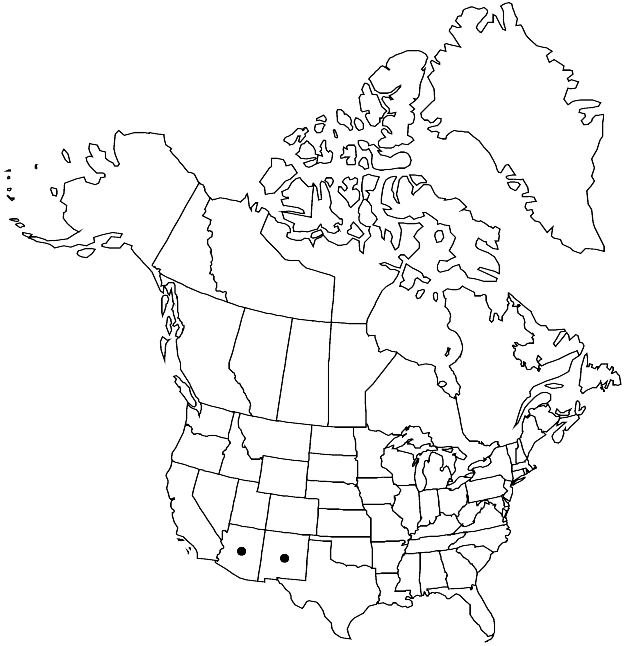Brachythecium ruderale
Mem. New York Bot. Gard. 82: 240. 1998.
Plants medium-sized, in moderately dense mats, light green to light yellow-green, occasionally intense green. Stems to 5 cm, creeping, terete-foliate, irregularly to regularly pinnate, branches to 5 mm, straight, terete-foliate. Stem leaves closely to loosely appressed, imbricate, broadly ovate, broadest at 1/7 leaf length, concave, plicate, 1.1–1.5(–1.9) × 0.5–0.7(–0.8) mm; base rounded, narrowly short-decurrent; margins plane or recurved, almost subentire to serrulate, sharply serrate distally; apex gradually to abruptly tapered, acumen long; costa to 40–70% leaf length, slender, terminal spine absent; alar cells subquadrate to short-rectangular, small, 15–25 × 13–16 µm, walls moderately thick, region ± clearly delimited, extensive, of 5–7 × 5–7 cells; laminal cells linear, 45–65 × 5–7 µm; basal cells 20–30 × 10–13 µm, region in 2 or 3 rows, not markedly different from more distal cells. Branch leaves similar, narrower; margins more strongly serrate. Sexual condition dioicous. Seta reddish orange, 1.5–2.5 cm, smooth. Capsule slightly inclined, reddish orange, cylindric, weakly curved, 2–2.6 mm; annulus not separating; operculum long-conic or short-rostrate. Spores 12–18 µm.
Habitat: Rock, soil, open xeric places
Elevation: high elevations (1800-2300 m)
Distribution

Ariz., N.Mex., Mexico, West Indies, Central America, South America, Africa.
Discussion
Brachythecium ruderale was known historically from the flora area only from New Mexico, where it was described as B. wootonii, and has more recently been discovered in Arizona, Cochise County, 1950–2130 m (Allen 27950, MO; Goodding 10822, MO). This is the most common species of Brachythecium in Mexico, Central America, and northern South America. The widespread tropical African B. implicatum Hornschuch ex Müller Hal. was considered conspecific with B. ruderale (as B. stereopoma) by W. R. Buck (1993). The typical expression of the species has closely appressed leaves resulting in an almost julaceous appearance. However, sometimes branch leaves are narrow and more loosely arranged. In North America, B. ruderale can be confused with B. acuminatum, which differs in having a shorter acumen, eplicate leaves, and homogeneous cells across the leaf base; with B. laetum, which differs in its more strongly plicate stem leaves, small opaque cells across the leaf base, and rather short distal laminal cells; and with B. oedipodium, which differs in having eplicate leaves and conspicuous, long and broad decurrencies. In B. ruderale, the pellucid or opaque alar regions reach from the margin 33% distance to the costa and extend distally to just below the broadest point of the leaf.
Selected References
None.